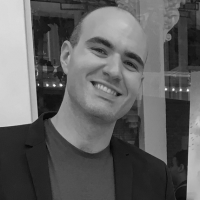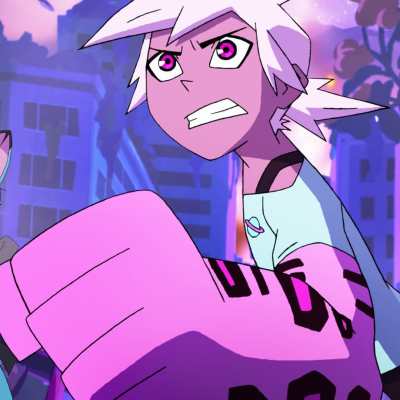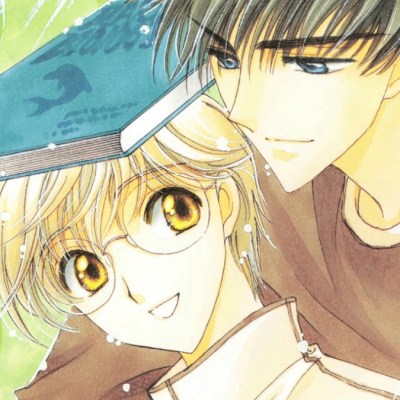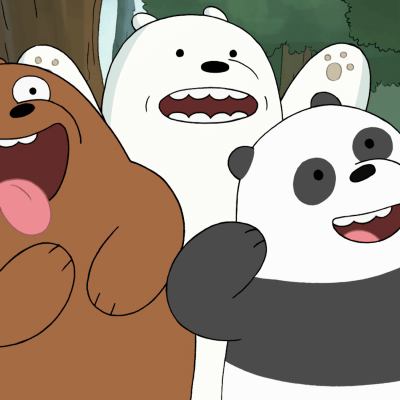The Making of We Bare Bears: The Movie
Creator Daniel Chong takes us through the history of We Bare Bears: The Movie, from the initial pitch to reworking the story to focus on Grizz and how the film has helped bring joy in a horrible world.
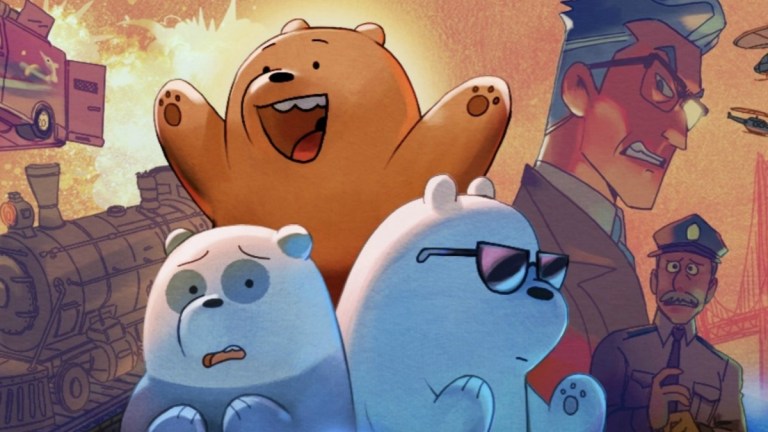
This We Bare Bears: The Movie interview contains spoilers.
We Bare Bears: The Movie is the perfect send off to the loveable Grizz, Panda, and Ice Bear that have been warming hearts on Cartoon Network since 2015. Their last adventure sees them going up against their own right to simply exist in the world as the government tries to capture them. The story is not only relevant to our times (where racism continues to show its ugly face) but also contains the melancholy that made We Bare Bears such a warm show alongside its trademark humor. It’s truly a special film that does the herculean task of wrapping up a long running series, commenting on the world, and just being the fun we need while going through dark times.
We spoke with show creator Daniel Chong for an in-depth discussion about the making of the film from its original conception to what Chong hopes fans take away from it. He also reveals how the film was reworked, adding a more serious tone to a mostly wacky series, and YouTube culture.
DEN OF GEEK: Let’s go all the way back and let’s talk about the initial process of how the movie came together two years ago. Did you pitch the story to Cartoon Network? Did they ask for a film? How did it go?
DANIEL CHONG: Yeah, they wanted a movie. They basically brought me into a room and they just said, “Would you be interested in making one?” And honestly, it was a call that I’ve been wanting for a while, because coming from Feature Animation, that’s where most of my career was. I felt very confident. I knew it was going to be difficult, no question, but I knew a little bit better what to expect making a movie.
I also felt that we had characters that could exist in a movie. They had enough emotional depth in them or capabilities that I knew that we could sustain them for a long period of time in a movie. So (Cartoon Network) suggested it and we were like, “Sure, we’ll do it.” But we had to write it while we were finishing episodes too. I think we wrote it over the course of a couple months, but at the same time, we were writing 11 minute episodes, and we were finishing episodes (in production).
A lot of it was just stacked for a while. It was a little stressful, but our two main writers, Mikey Heller and Kris Mukai, they really buckled down and were able to multitask and that’s how it got done.
What was the inspiration, the spark, for the initial story? What made you want to do the film that we are now getting to watch?
The first thing that we needed was a sense of scale. We needed a really big idea. One of the big ideas in the movie is there’s a forest fire. Around that time, there were tons of forest fires happening in California and there were images that were floating around in articles of bears that had their paws bandaged up. It was a really sad scene but I think when I saw that, I immediately sent it to our writers and was like, “I think this is what our movie is about. I think this is the big climactic thing that’s going to happen in our movie. Something that involves fire and these bears dealing with a forest fire.”
I immediately knew that that’s something we’d never be able to do on a regular show, it’s just too complicated, it’s too expensive and too busy. But I knew if we had a movie, we should just go for it and do something ambitious. It definitely was also very high on the ambition scale. So I think that felt right.
The second thing that I knew that started to coalesce was that we were basically going to use all the big themes that we’ve used in the show and put it into the movie. And almost, we were going to make fun of the show in the movie.
There’s a a scene where the villain is talking about all the reasons bears shouldn’t exist and walk around humans. In a way, it’s almost like we’re making fun of the show. It’s like, why are bears talking? We’re basically making fun of the cartoon concept that we’ve created and using it to give us a story, because then everybody’s like, yeah, why haven’t we questioned that? That is weird. Why are they walking among us?
And so it was a way to kind of make fun and point at our show and expose it, I guess, and then use that to really set the movie into motion. So I think those were two of the really big ideas that helped motivate where we were going.
You have a lot of serious things going on and you have a lot of comedy. Bagel Rat shows up in this movie! How do you achieve that balance when you’re telling a more serious story?
It was a trial and error thing. I mean, honestly, we already had the show so we knew what a Bears episode looked like. But there were some moments when the emotions weren’t working because we had never gone there before and we didn’t know how to handle a certain levels of emotion.
There was one scene that was a pivotal, emotional scene that was happening before the end of the second act. I remember one of the characters was just in agony. The first time it was pitched, the whole room laughed, and it wasn’t because it wasn’t boarded well, it wasn’t because the scene was written wrong, it’s just that we had never experienced that emotion with our characters and almost was like, “what are we doing? Is this right?”
It was almost a defense mechanism in some ways. It’s like, this is too heavy, but that’s what you need to do in a movie. Once we put all the pieces together, it’s really just about managing tone and music can help a lot with that. It’s a balancing act, kind of like you said. It’s about finding where does comedy need to exist to lighten it and where do we need to just commit straight to the emotion and the drama? It’s really a trial and error and you just kind of figure out as you go.
But the nice thing is I’ve had this team that worked on this movie for quite a long time. We worked together, we had a really strong workflow, and we just could read each other’s minds. I trusted them, they trusted me and we just all held hands together and really just made a very long episode, essentially. It was a lot of business as usual in some ways where we just were kind of just doing it the way we’ve always done it.
I loved the focus on Grizz in this film. His dream sequence especially was very, very powerful. Talk a little bit about the focus on him and how he really finally has to take responsibility for some of his wacky antiques.
Yeah. I think it’s great that you pointed that out because it was kind of like a late decision to steer it more in his direction. The nightmare never used to really be centralized on him. It was a decision kind of a little later as we started seeing the movie a little better. It made sense because he is the one that’s carrying the burden of his brothers. He is the one that cares for them the most, he always comes up with the ideas, he’s the first one we meet in the movie, and he’s the one that basically has the most responsibility for this family staying together. It just made sense as we were making it. It’s like, no, I think he’s the one that has to lead the charge and bring everyone back together because he’s also the most flawed.
He’s the one that makes the most mistakes and also pushes for things when people don’t want them because he just needs to be a leader. It was fun to find out how important he was going to be to the whole overall arc of the story. But it felt right, I think once we did it, that the older brother is the one that carries that burden.
Was it the nightmare scene originally focused on all three bears then?
The nightmare scene never existed before; it used to be something completely different. When Grizz remembers that flashback with him as a kid, that scene actually used to have all three bears remembering it. But as we got into the writing, we realized, no, I think Grizz is the most important person here. He’s the one that had the nightmare that exposed his vulnerabilities of how much he was concerned about the wellbeing of everyone. He’s the one that can make the most change and bring everyone together.
I love that bit where he’s locked up and he meets all the other bears and they don’t speak human, for lack of a better term. That was so striking to me that, even though he doesn’t understand his own kind, he’s still willing to help them out. That’s just Grizz, that’s just what he would do.
Yeah, totally. Having bears is a big rule breaker for our show. I never wanted to have other bears on our show because it would make our main characters less interesting, but this felt like the right time to do it.
For me, it almost related a lot to being Asian American because I don’t speak my own native tongue either. So I know what it’s like to go back to my country and realize that there are people who have my same heritage but I don’t speak their language. We talked a lot about that experience when we went into that scene and how we would play the miscommunication or the recognizing each other, but at the same time, not being able to communicate.
It’s just so much of your own experience and I’m sure the experience of a lot of people who worked on the film as well. I’m sure it’s just countless experience but feels like it all filtered into the film and made it like the best episodes of the show. They’re very funny but also very, very personal.
I think that is the key to what our show is. It’s the personal touch. Knowing that this story had a very personal message that I really cared about and experienced deeply is something that helps. But we try to give a voice to not just the writers or our directors, but even the story artists. We make it in a way that they also get to be participants in the writing and in the brainstorming so that they can put their contributions in. It becomes this amazing hive mind of, how can we make this as authentic of a feeling and experience as possible? I do think a lot of that is just getting the right team that gets along and just cares enough about the show or the movie. That even extends to the art team and the production.
It really makes a difference when they care about what’s being said and what the message is. I think everyone really understood what we were trying to say and really got behind it and really valued it. It really helped the production just move a lot better.
On the more fun side of the film, and the show set the precedent for this, but We Bare Bears gets YouTube and video culture more than any other kid show out there. Since the Bears were so obsessed with it in the show did that mean it had to become a plot in the film as well?
It was always in the DNA of the pitch of the show. I think it’s a risky thing and not a lot of shows want to do it because it can verge on the cringy side. It can also get outdated really quickly and become too topical or too in that moment. So you really always will run the risk of those things when you introduce internet things.
But we just went for it. I hadn’t quite seen it done a certain way so I just said, “I’ll put my own spin on it and I’ll find a way to make it so it doesn’t get outdated too quickly.” And so our first episode was called ‘Viral Video’ and it was about the Bears trying to make a viral video. It was always embedded in the DNA that internet culture and those things were going to be inherent in the film.
As we started bringing in different story artists and different writers, they were all very young, in their twenties and they all were internet cultured kids and it was a big part of their lives. So I just said, “Let’s just go for it. You guys should just write what you guys know and push the things that are funny to you on the Internet and let’s put it in the show.”
I still have to sit through it and if I don’t get the reference enough, I’ll probably have to tell them not to do it. But that’s just kind of the balance that we do. In the movie we just exploited it to the 10th degree. I mean, they did the most cringy viral video you could have imagined, and it almost worked that they were all outdated memes because it had to fail. Then we go into this animal commune and we basically get to expose all these new internet animals, which was really fun to do. We just used the movie to go all out on everything.
Is this film the last time that we’re going to see the adult bears? Is this their final adventure?
My belief is that We Bare Bears hopefully will be a show that can continue on in different ways, not just in spinoffs. I think to me, it’s the perfect vessel for something that could be reinterpreted or carry on for a long time, hopefully, and re-envisioned. I’d like to think that there will be a future where we’ll continue to see Bears for a while, as long as we can keep it interesting.
Note: This interview was conducted before Daniel Chong publicly announced that the film was the finale of the series and that he’d be departing Cartoon Network to work on a unnamed project. He did provide us with a quote reflecting this, which can be read below.
It’s been an incredible journey making We Bare Bears with a crew that I absolutely adore. I’m heartened to know that the response to the show has been so positive, and that I can leave knowing that we brought something good into the world.
After this film comes out, what are you hoping that people take away from it?
It’s funny because I think when we made it, we definitely had a very pointed message that we were very aware of and were thinking would be very relevant. That is one aspect of it but if the movie is not entertaining and not bringing people joy, it fails. It can’t just be a piece of a film that just has a message. So to me, especially when the pandemic hit, I think it became very real to me that maybe a bigger purpose for this show might just be to make people happy and to just bring joy to them. More and more, especially after a pandemic and honestly, to some degree, even now with everything else happening, I do get a lot of messages from people just saying how We Bare Bear’s has been able to be something that’s just made them happy in spite of how horrible things are in the world.
They enjoy seeing the bears and it kind of de-stresses them or makes them feel hopeful. I think that more than anything, if the show can aspire to attain those things? That is good enough. That is a goal that is already exceeding expectations. The message is there if people want it or people want to receive it, it’ll always be there and they can read into it however they want.
But I think for me, if people just like the film enjoy it and it brings them hope and joy? I think that is good enough for me. That’s kind of where my head space is at right now. Maybe it changes in a week, but that’s how I feel right now.
Do you have any other messages to share with either the fans of the show or just any other things that you want to put out into the world?
I’ve been thinking a lot about what making Bears has accomplished, and how I was able to use it to represent my culture and normalize things in episodse that would otherwise be considered so foreign. With everything going on now- I think it’s even more obvious the value of having more diverse animated shows, particularly with African American creators and what that could contribute to pop culture and the way we see the black community. Especially since so many kids watch animation, it would be so formative. My hope is that studios are making a concerted effort to fix that. And I hope I can help contribute to that change with the resources I have.
Stay tuned to Den of Geek for more about We Bare Bears: The Movie as Chong discusses the more serious side of the film and how it tied into the core message of the series.
